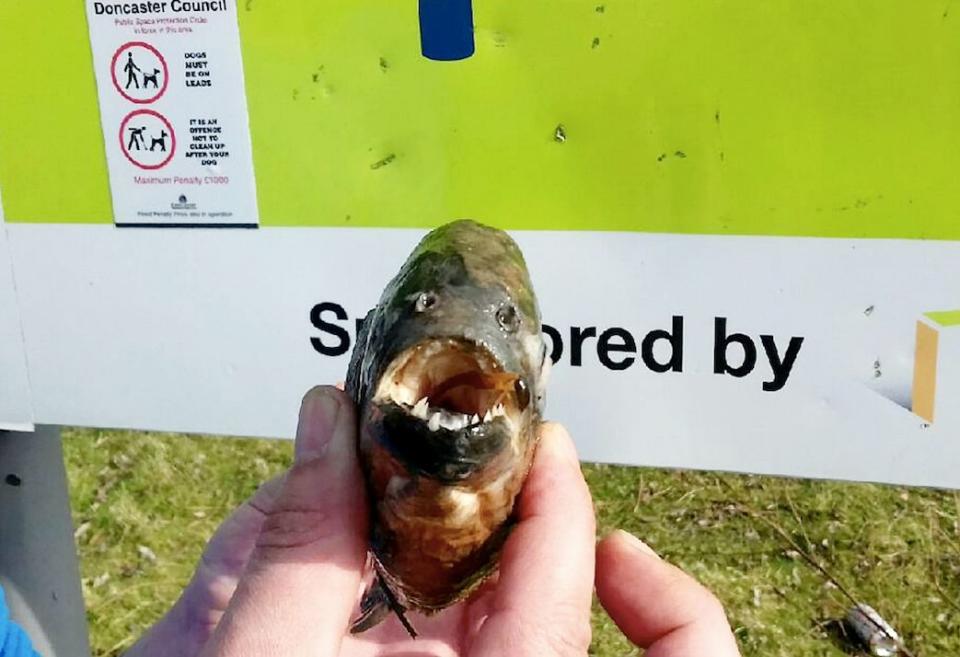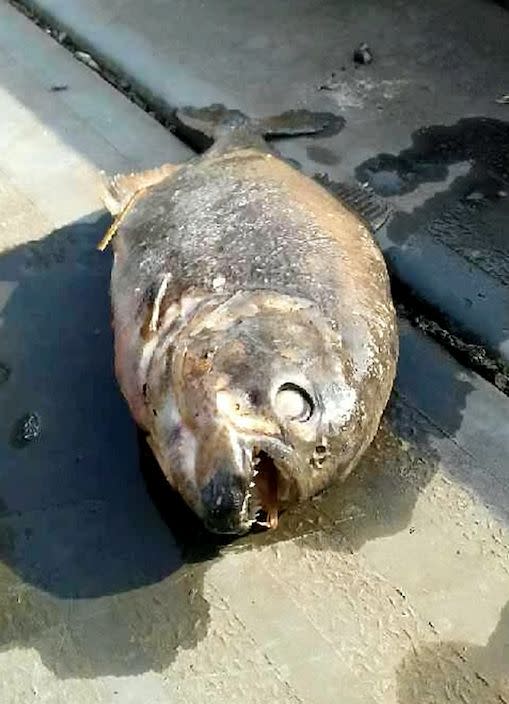Tests carried out on deadly piranhas found in Doncaster lake where children play

Tests are being carried out on two piranhas found dead in a fishing lake in Doncaster.
Residents spoke of their shock after the deadly carnivores were discovered at Martinwells Lake in Edlington.
Some locals blamed the piranhas for a downturn in fish and duck sightings but experts have suggested that it is virtually impossible for them to have lived in Yorkshire-temperature open water.
Gill Gillies, assistant director of environment said: “Given the natural habitat of piranhas, it is highly unlikely that the fish were alive at any time in the lake.
“We assume that these were pets that were placed in the lake, something that we would strongly discourage people from doing. The presence of a piranha is somewhat of a novelty so they have since been taken away by the Environment Agency for testing.
“In any event we would always strongly advise against anyone paddling or swimming in this or any lake due to the dangers of deep water.”

Locals at the beauty spot say they have noticed a reduced number of ducks and fish at the lake - and think the flesh-eating fish, usually found in the Amazon, could be responsible.
Mum Toni Hooper, 32, from Doncaster, saw the fish when out walking with her family on Sunday.
She said: "When we realised what it was it sent shivers down my spine.
"This is a popular spot amongst families, dog walkers and fishermen. It's always busy here.
Read more from Yahoo News UK:
Samsung's folding phones 'already breaking’
Fund to rebuild Notre Dame Cathedral hits billion-euro mark
Bus crash in Madeira leaves at least 29 tourists dead
She added: "We came here to feed the ducks and on Sunday we noticed there was only one duck and two ducklings, I'm concerned about where the wildlife is.
"I've spoken to others who have said they've noticed there aren't as many ducks."
Her partner, Gary Walker, 34, often fishes at the site and has noticed fish hauls have reduced.
"There's a play park nearby, so you get kids here paddling in the water, teenagers will go swimming here.”

The former clay pit is now home to a lake which is usually well-stocked with carp, tench, bream, perch, roach, pike and chubb along with usual pond life of newts, frogs and toads.
Ducks, coots and water hens all live on the pond which is visited each year by swans to raise their young.
Mum-of-three Lisa Holmes, 37, who was there with partner, tree surgeon Davey White, 37, and their youngest child, Sonny, eight, were shocked to find the razor-toothed fish.

She said: “He [her partner] managed to get it out of the water and although he’s a keen angler, he wasn’t sure what type of fish it was straight away.
“But then we started looking at it more closely and saw the teeth we realised it was a piranha.
“We went home and Googled it and it’s quite clear its a piranha. It was quite a shock.”

Known for their sharp teeth and powerful jaws, piranhas are known to have killed humans – although attacks on people are rare.
Most attacks only result in minor injuries, typically to the feet or hands, but they are occasionally more serious and can be fatal.
In 2011, a drunk 18-year-old man was attacked and killed in Bolivia, a five-year-old Brazilian girl was attacked and killed by a shoal in 2015 and in 2016 a Brazilian girl died after her grandmother’s boat capsized during a family holiday.
An Environment Agency spokesman said: “Piranhas are not native to England and do not belong in our rivers and lakes.
“These fish do not easily survive or feed at temperatures below 10C and readily succumb to the cold of northern winters.
“Nevertheless, we would encourage anyone that keeps exotic fish and which may have outgrown their tanks, to contact a specialist able to advise on how best to deal with them.
“It is illegal to release or transfer fish in England without the appropriate permit. It is also illegal to keep non-native species in the wild without a permit.”

 Yahoo News
Yahoo News 
